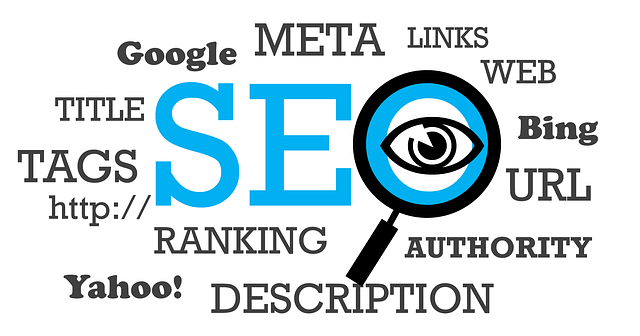Why doesn’t my website show up when I search for my keywords? How can I fix it? What am I doing wrong? If you own a website, you’ve probably asked these questions. Every website owner wants their site to be one of the first ones people see when they search. That’s because most people only look at the first few results. Being at the top means more visitors, which can lead to more sales. Understanding this SEO principle is crucial. SEO principles are like rules that help your website perform better in search results.
If your keywords aren’t very competitive, it’s easy to get good rankings. Just use them in your title and somewhere else on your webpage. But if your keywords are popular, it’s harder. You need to make sure your website is really good and convince search engines it’s worth showing first.
Making Your Website Stand Out With SEO Principles
To make sure your website shows up well in online searches, it’s important to understand what makes it rank high and what you should do for each page to make it better. Tricks to fool search engines into giving you top spots don’t work anymore. Search engines like Google have updated their systems to only show the best results for specific searches. So, it’s better to focus on making your site really good instead of trying to cheat your way to the top.
Google is the biggest search engine, so it’s smart to pay attention to the changes they make in how they find the best websites. Recent updates to Google’s system can really affect where your website shows up in search results. Search engines, especially Google, are getting smarter at showing the right results, and you should be smart too in making your web pages better.
To do this, you need to understand basic SEO and SEO principles. Basic SEO means doing simple things like using the right keywords in your content and making sure your website is easy to use. SEO principles are the rules for making your website better for search engines. These include using keywords in the right places and making sure your website has good information.
By following these principles, you can make your website more likely to show up when people search for things related to your website. It’s important to keep learning and trying new things to make sure your website stays at the top of search results.
Explaining How Search Engines Work and Basic SEO Principles
To truly be effective in optimizing your web pages, it’s important to know how search engines work. Imagine the internet as a big subway system with lots of stops. Each stop is like a different document, such as web pages or PDFs. Search engines need to travel through this “subway” and visit all the stops to find information.
When a search engine visits a stop, it reads the information on that document and saves it for later. Then, when someone searches for something online, the search engine looks through all the saved information to find the best answers. It uses special rules, called algorithms, to decide which answers are the most helpful.
For example, Google updates its rules often to make sure it shows the best results to users. While website owners want their sites to be at the top of search results, Google wants to give users the most helpful answers. So, to do well in SEO today, you need to make sure your website has the best answers for the things people search for.
Understanding basic SEO and SEO principles can help you make your website better and more helpful for search engines. This means using the right words in your content and making sure your website is easy to use. By following these rules, you can improve your chances of showing up when people search for things related to your website.
Important Tips for Basic SEO
Now that you know more about how search engines work, let’s talk about how to make your website better with basic SEO and SEO principles. It’s important to keep your website updated because search engines like Google like to see fresh content. This shows them that your website is active and current. So, try to post new stuff on your website regularly and add new pages too. When you do, here are some things to keep in mind:
1. Writing for your audience
If a user clicks on your link and then hits the Back button after just a few seconds, search engines take this to mean the user wasn’t satisfied with the information you have to offer. If you want search engines to deem your site useful to their users, therefore, you have to provide content a user will appreciate. This is why you need to create content with the audience – not the search engine – in mind. Remember, in the SEO of today, you get good rankings not by focusing on the ranking, but by focusing on the quality of your site. And quality content is one of the best indicators of a quality site.
2. Keyword research
Everything in search begins with the words people type in the search box. To make your website successful, you need to rank for the right words. But how do you know which words to rank for? That’s where keyword research comes in. You need to find out which words and phrases your customers use when they search online for things related to your business. Tools like Google Correlate, MOZ, and SEMrush can help you with this.
3. Writing titles for search engines
As mentioned above, your content should be created with the audience in mind. But that doesn’t mean you can completely take the search engines for granted. You also need to optimize your content for their bots, of course. The best way to do this is to make sure that while your titles are catchy and attractive to your target audience, they are also attractive to search engine bots. This means you need to include your keywords/phrases in your titles, preferably within the first few words.
4. Using keywords and phrases
Just as it is important to incorporate your keywords/phrases within the first few words of your title, it also helps a lot to use keywords/phrases within the first few sentences of the body of the content. In most cases, it is advisable to use keywords/phrases only once or twice in an article, so as not to be penalized for keyword stuffing. So if you have to use your keywords/phrases only once in a blog post, it’s best to make it part of the introductory paragraph.
5. Keywords in Meta descriptions
You’ve included the keywords/phrases in your introductory paragraph and title. Is there any other place on your web page where it should be found? Definitely! Keywords/phrases are of much help when included in the Meta description, preferably in the form of a question. For example, if you are trying to rank for the term “Italian pizza”, you could write the Meta description as, “Craving delicious Italian pizza? Look no farther than…”
Note that search results show the article title, the Meta description, and the page URL. The keyword/phrase match is also shown in bold, so including it in the Meta description definitely helps bring the user’s focus to your link. The question form is preferable because it encourages users to click through in order to learn more.
6. Customized web page URL
As mentioned above, search results include the page URL, so it only makes sense to customize your URLs such that they include the keywords/phrases you want to rank for. Note that search engines normally skip pronouns and articles, so when you customize your URLs, you can leave out “a”, “an”, “the”, “of”, etc. Just make sure your main keywords/phrases are there.
7. Article sub-headers
One of the most important things you need to understand when creating content for your site is the general behavior of Internet users. Among the things you need to note is the fact that most of those who consume information online don’t really read through the entire content; they simply skim through. This is why it is important for you to break your content down into sections that are easy to skim. Sub-headers are very helpful in this case; they even help search engines understand what your post is all about, and that is very important for SEO.
If you’re serious about improving your SEO performance, then you should keep the above tips in mind. Note that Search Engine Optimization is ever-changing and you may have to make a few adjustments along the way, but the tips given above should help you take care of the basics, which have remained constant since search engine optimization first came to be.






